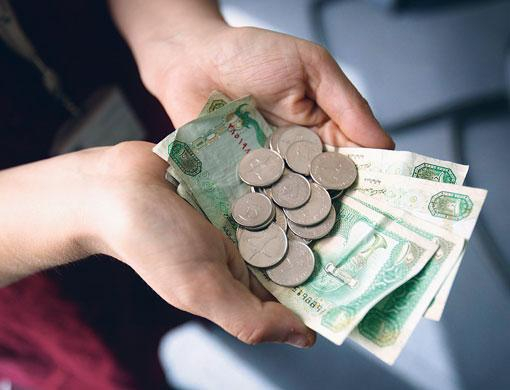
Dubai: Say, you're 10 years old today. How much will you have if you save Dh10 for 20 years if you invest it in a fund that earns better than a bank savings account?
The answer abviously depends on the yield of the fund you invest it in.
This question may be the last thing in the mind of a grade schooler more concerned about buying the latest whizbang gadget or downloading a fancy app.
But it's never too early to start teaching them about how money -- and the discipline of saving -- works, said Sa’ad Al Rubaiaan, a UAE-based entrepreneur, who launched the first institute to teach children and youth about financial literacy.
Fils Planet, is a Dubai-based centre that aims to teach children and youngsters (Ages 7-17) about financial education through innovative programmes and events, Al Rubaiaan said.
Why Fils Planet?
It's because managing money wisely starts with the smallest component of the currency, the “Fils”, where children and youngsters get exposed to a new “planet” of financial edu-tainment!
The main courses of the institute are focusing on the four financial skills — saving, spending, investing and gaining.
He added that market research showed that the need for such a niche audience and unique services are high, considering that the competition currently is either missing some parts of the financial education or is being delivered for commercial purposes and is mainly offered for adults.
“We believe that teaching financial education to children and youngsters is a collaborative effort and responsibility especially in the Arab world.”
“In our region, we lack the financial management in our lives. We don’t have control over our spending, which most of the time lead us into huge debts. And recently a big number of our youth are suffering the burden of debt which affected their lives negatively.”
To avoid the debt trap, key money concepts must be part of a child's education -- budgeting, objective saving and reasonable spending.
“We are trying to insert this kind of educational elements to be an integral part of their lifestyle,” Al Rubaiaan said.
Parents
While the institute aims to target students (aged 7-17) who are fully dependent on their parents/families as their main source of income, training programmes are also offered to parents through interactive workshops which guide them to raising financially responsible children.
Arwa Al Qasim, Al Rubaiaani’s wife and main partner in their new business, said that they benchmarked their studies based on the best practices in this field across several world countries including Singapore, UK and others.
“We customise the institute courses to suite the children and youth in the region and especially the needs of over 200 nationalities in the UAE,” she said.
The curriculum has been developed by a specialised consulting team in which they benchmarked the curriculum with international best practices. The curriculum has also been customised to fit in the local market and culture, incorporating socially specific concepts from Islam, such as “Sadaqa” (giving to the poor), “Eideya” (giving money to children during Eid), “Zakat” (donating to the poor from one’s savings) etc, Arwa said.
She added that the new concept of this new kind of education is that they merge education with entertainment to simplify the aforementioned sophisticated topics.
As an example, she said public events for children and youngsters (7-17 years) in the form of a one-time interactive workshops or outcome-based training courses which consist of 10 interactive sessions for each age group.
Personal e-training and interactive workshops for parents on how to raise financially educated children are also included in the courses.
Now, back to the question above: How much money will you have by the time you hit age 30 by saving Dh10 daily except on weekends? If the average yield is 10 per cent, the answer could be somewhere around Dh151,000.
Note: If you're a bit cynical, whip out an Excel worksheet and type this formula in one cell "=FV(.10/12,240,-200)"; where FV is future value, .10/12 is annual interest (paid monthly), 240 is the number of months, and 200 is the monthly payment, expressed in the negative. If we have the same answer, you get the idea of how compounding interest works.












